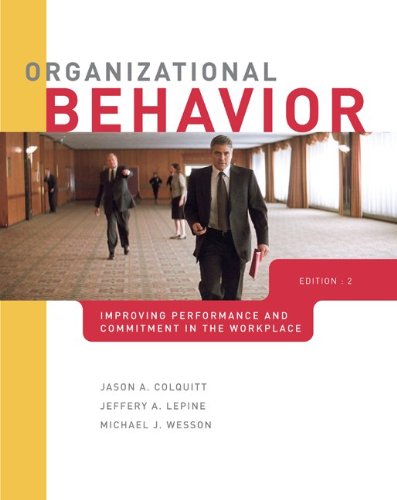Hannah Jones serves as Nikes vice president of corporate social responsibility, overseeing a 135-person team and reporting
Question:
Hannah Jones serves as Nike’s vice president of corporate social responsibility, overseeing a 135-person team and reporting directly to CEO Mark Parker.131 Jones’s team is charged with weaving issues of corporate social responsibility throughout Nike’s operations.
That mission includes auditing and managing Nike’s factories around the world.
However, it also includes issues of environmental sustainability. In 1992, a German magazine pointed out that the signature Nike Air pocket included more than just air—it also contained sulfur hexafluoride, or SF6—a potent greenhouse gas more commonly linked to older refrigerators and air conditioners.132 SF6 breaks up slowly in the atmosphere, which means that even very small amounts have a significant environmental impact.
Estimates suggest that at the peak of SF6 production in 1997, Nike Air footwear carried a greenhouse effect equivalent to the tailpipes of 1 million automobiles.
It took Nike almost 14 years to devise a new air pocket that was as light, durable, and shock-absorbing as the SF6 version.133 The breakthrough wound up utilizing nitrogen, held in by a redesigned sole that includes 65 wafer-thin layers of plastic film. The new approach, which debuted with Nike’s Air Max 360, allows the air pocket to stretch throughout the sole, giving even more comfort at even less weight. The company has also devised a program that calculates an environmental impact rating for each shoe, based on use of toxic adhesives, curbing of waste, and use of recycled materials.134 Even the Air Jordan—arguably Nike’s flagship shoe—was designed with environmental impact in mind, such that the shoe’s sole consists of ground-up bits of old Nike sneakers.135 You won’t see these issues discussed in television or print ads for Nike shoes, however. Unlike Wal-Mart or General Electric, which aggressively trumpet their “green” initiatives, Nike prefers to deemphasize sustainability in its marketing efforts. One independent branding consultant explains that strategy by noting, “Nike has always been about winning. How is sustainability relevant to its brand?”136
Questions:-
7.1 Do you agree with Nike’s decision to downplay “green” issues when marketing its shoes? Why or why not?
7.2 Assuming price and quality are both acceptable, to what degree do you consider the ethical reputation of a company when buying a product or service?
7.3 Does it seem like Nike is doing enough to build and maintain the trust in its brand? If not, what else would you like to see the company pursue?
Step by Step Answer:

Loose Leaf Organizational Behavior
ISBN: 102465
2nd Edition
Authors: Jason Colquitt, Jeffrey LePine, Michael Wesson





